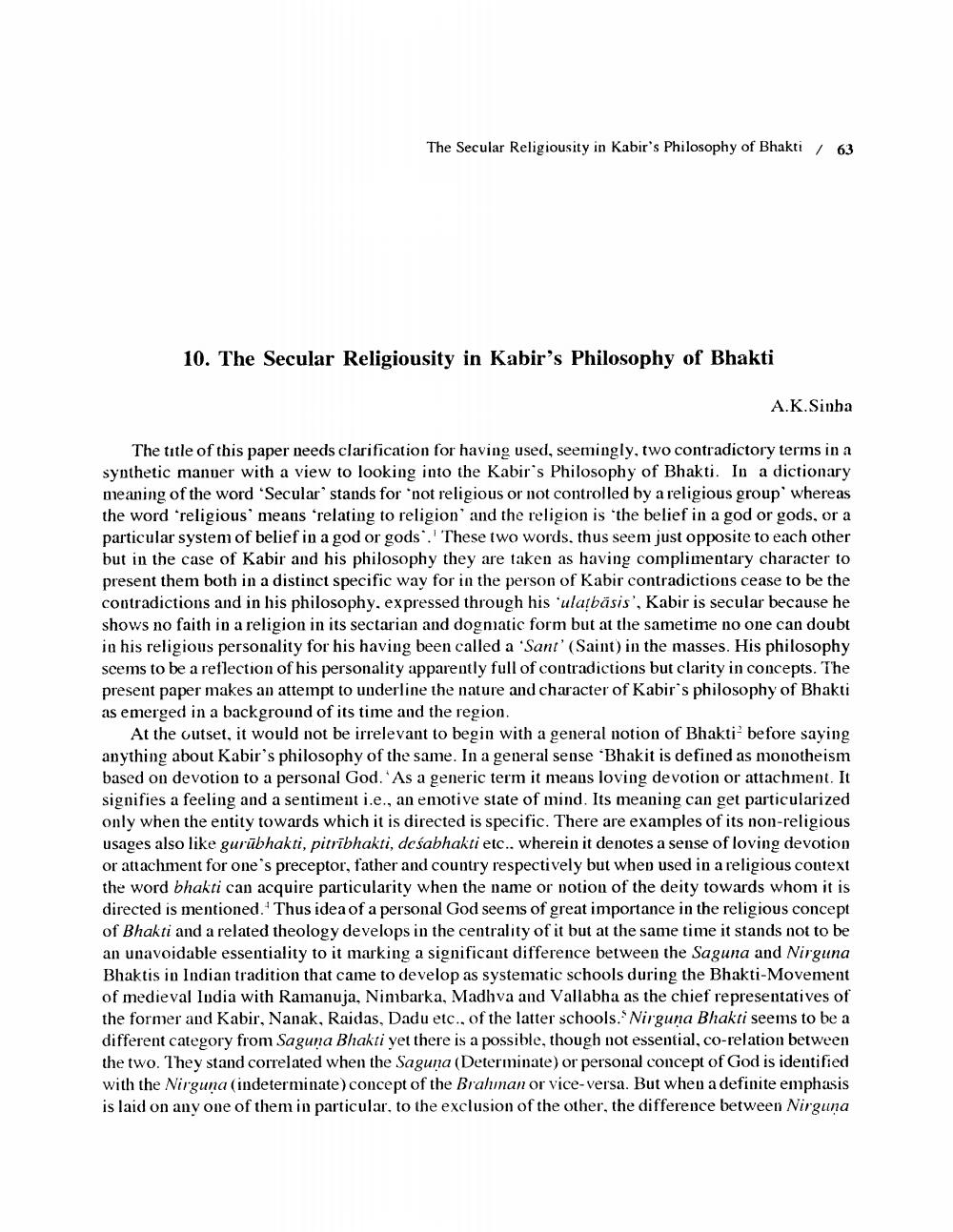________________
The Secular Religiousity in Kabir's Philosophy of Bhakti / 63
10. The Secular Religiousity in Kabir's Philosophy of Bhakti
A.K.Sinha
The title of this paper needs clarification for having used, seemingly, two contradictory terms in a synthetic manner with a view to looking into the Kabir's Philosophy of Bhakti. In a dictionary meaning of the word 'Secular stands for not religious or not controlled by a religious group' whereas the word 'religious' means 'relating to religion' and the religion is 'the belief in a god or gods, or a particular system of belief in a god or gods. These two words, thus seem just opposite to each other but in the case of Kabir and his philosophy they are taken as having complimentary character to present them both in a distinct specific way for in the person of Kabir contradictions cease to be the contradictions and in his philosophy, expressed through his ‘ulaṭbāsis', Kabir is secular because he shows no faith in a religion in its sectarian and dogmatic form but at the sametime no one can doubt in his religious personality for his having been called a 'Sant' (Saint) in the masses. His philosophy seems to be a reflection of his personality apparently full of contradictions but clarity in concepts. The present paper makes an attempt to underline the nature and character of Kabir's philosophy of Bhakti as emerged in a background of its time and the region.
At the outset, it would not be irrelevant to begin with a general notion of Bhakti before saying anything about Kabir's philosophy of the same. In a general sense Bhakit is defined as monotheism based on devotion to a personal God. As a generic term it means loving devotion or attachment. It signifies a feeling and a sentiment i.e., an emotive state of mind. Its meaning can get particularized only when the entity towards which it is directed is specific. There are examples of its non-religious usages also like gurubhakti, pitrībhakti, deśabhakti etc.. wherein it denotes a sense of loving devotion or attachment for one's preceptor, father and country respectively but when used in a religious context the word bhakti can acquire particularity when the name or notion of the deity towards whom it is directed is mentioned. Thus idea of a personal God seems of great importance in the religious concept of Bhakti and a related theology develops in the centrality of it but at the same time it stands not to be an unavoidable essentiality to it marking a significant difference between the Saguna and Nirguna Bhaktis in Indian tradition that came to develop as systematic schools during the Bhakti-Movement of medieval India with Ramanuja, Nimbarka, Madhva and Vallabha as the chief representatives of the former and Kabir, Nanak, Raidas, Dadu etc., of the latter schools. Nirguna Bhakti seems to be a different category from Saguna Bhakti yet there is a possible, though not essential, co-relation between the two. They stand correlated when the Saguna (Determinate) or personal concept of God is identified with the Nirguna (indeterminate) concept of the Brahman or vice-versa. But when a definite emphasis is laid on any one of them in particular, to the exclusion of the other, the difference between Nirguna




